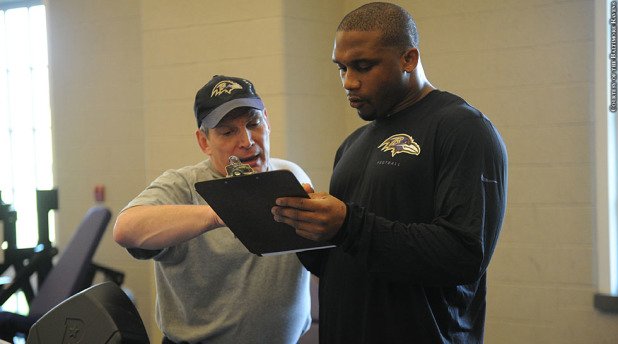Networking Strategies for Coaches Without Conferences
Missed this year’s BIG Strength & Conditioning Conference? Worried about how you are going to grow your network without getting to meet the big-wigs of S&C? Don’t worry, I have yet to attend the “big dance” of conferences but have still been able to amass a sizable network using some strategies that I want to share with you today. So buckle up and get ready to meet new people (or at least learn how…)
While getting to meet people at conferences is by far the easiest and most fun way to quickly grow your network, it doesn’t (and shouldn’t) be the only way. Below are 5 other ways in which you can continue to meet other people just like you!
1. Site Visits
Starting with the option that is potentially better than meeting someone at a conference- getting to meet them at their facility! Talking shop with another coach makes way more sense when they can simply show you their set-up, watch how they coach, and see their space for yourself. While this isn’t the easiest and requires more effort on your part (set up the visit, travel, time, etc.) it is by far the best way to learn as you can see how other coaches do, things rather than just hear about it.
I have done a simple Google search of facilities in my area and looked for their contact info. As a S&C on the University side, I have an easy connection to other local universities, but I have also visited CrossFit gyms, Private facilities, big box gyms, and even physiotherapy clinics to grow my network and learn more from areas outside of my own. All it takes is a Google search of what you are looking for (i.e.. “Fitness Facilities/Universities near me”). Then you look up their contact info for a facility or look at the “Staff Directory” for a university and find the Strength & Conditioning Coach’s email. Then it takes some courage and a simple introduction and ask:
Then you wait and see what happens!
2. Cold Calls
This next step requires a bit more courage on your part if you are on the tail end of the Millennial generation like me and using your phone to call people kind of scares you… but it is as simple as picking up the phone and dialing a coach’s number. Easy enough, right? How do you get a coach’s number? Same steps as the first tip- Google the coach you want to talk to or the facility they work at and check to see if there is a phone number listed. Most University Staff Directories will have phone numbers listed, which means you can probably check the site, get the number, and dial the phone.
While this seems bold in today’s day and age, what you have to remember is that most of the coaches you are trying to get in touch with (who are probably a bit older than you) are more than comfortable using their phone as a phone and not a gaming/social media/texting device like us younger versions. So giving them a call isn’t such a big deal. Now, if I am honest, and based on fear of talking on the phone, I often send the coach an email first with a similar intro as before and ask if there is a good time for me to call them. While most coaches, including myself, would be more than happy to receive a phone call with the opportunity to talk some shop, we all know coaches are busy and you don’t want to catch them on their 39-second break between groups/clients. So I find starting with an email to set up a call (or a ZOOM these days) goes a long way in breaking the ice. This leads us to number 3…
3. Emails
As you have seen in the first two strategies, email is a powerful tool and everyone has one. Most are made available to the public (aside from professional teams) and are easy to find. I find email to be a great way to get the ball rolling, introduce yourself, explain a little about your situation, and ask any questions you have. It also has the benefit of not being time sensitive like a phone call, so you can email someone today and the coach can get back to you when they have time a few days later if need be. I have sent many emails to coaches to ask questions, set up site visits, chat, or simply reach out and say thanks for a great presentation (pretty much EVERY coach gives out their email at a conference/event when they present). So if the cold-call idea scares you like it does me, then this is your best bet. The downside of simply sending an email is they can choose to ignore you and then you never get a response…
4. Social Media
This one is probably the fastest and easiest way to connect with MOST coaches these days. Almost everyone has a social media presence, whether it is on Instagram, Twitter, or LinkedIn. And with that, everyone is putting out content and trying to promote themselves, their business, or their program’s work. This makes it incredibly easy to reach out to coaches and ask them something about a post they made, compliment them on their work, or just ask a general question if they are putting them out there as knowledgeable professionals in the field.
While Social media is also full of a bunch of wannabe coaches, all you need to do is watch a few of their videos or read a couple of their posts to see if their content is worth a follow and then connect with them.
5. Webinar/Online Courses/Podcasts
As coaches, we are always trying to learn more and better ourselves (hence you reading this article I hope). With so much content being pushed out, whether through online courses, webinars, or endless podcasts, these provide great opportunities to reach out to the coaches presenting or being interviewed. Same as with social media, if a coach is presenting online or being interviewed, they are stating that they want to share some insights and that gives you easy access to reach out to them. Same as with in-person presentations, 99% of online presenters will give you their contact info, whether it is their email, phone number, or even their social media link. Then you simply follow the strategy above that aligns with that mode of communication. It also makes it an easy icebreaker to open with something along the lines of:
“Hey Coach, my name is ___ and I recently heard you present for Y Company/on Z Podcast. I loved the info you presented, especially ___. I did have a quick question regarding ___.
(Ask a question)
If you have time to respond, I would greatly appreciate it. Thanks again for sharing your insight and I look forward to connecting.
Thanks!”
Very similar to the site visit, but once again, this becomes an easy ice breaker as they technically started the conversation by providing you with information, you are just responding to their work.
Conclusion
While those 5 tips have been a great way to START networking, as anyone who has been in a long-term relationship knows, that doesn’t happen because of one interaction. You can’t email someone one time and then call them your mentor or put them on your resume as a reference (I’m being serious, don’t do that). It takes time, consistent communication, as well as some give and take on your end.
One of the best lessons I learned from my colleagues is that you need to give to the relationship at times too. Just because you are a young coach or even an undergrad student, doesn’t give you the right to ask 1000 questions and then peace out, and it also doesn’t mean you have nothing to offer. If you are doing a site visit, offer to grab them a coffee or lunch. You may have to pay for their time if they run a business and they are taking time away from doing that to talk to you. If you are constantly asking questions over email or the phone, make sure you give them some insights into what you are doing or ask if they have any questions for you. You might be surprised what comes back your way.
Seems weird, but for a quick example, if I am asking a coach about Velocity-Based Training, I would start by asking how they use it, maybe add some specific follow-up questions, and then when the time is right, tell them how we have been using it (see my previous article for info on how we use it here at TWU). It might sound arrogant to try and teach the person you reached out to, but at worst it keeps the conversation going and gives them a break from talking, and at best you helped provide them some insight and hopefully strengthened the relationship.
Oh, and just to be clear, by “consistent communication” I don’t mean a phone call every day (unless agreed upon). I try and reach out to coaches on a semi-regular basis (which in the University realm ends up being once a semester). Once I have built up a stronger rapport with them it makes it easy to drop a quick text:
Long story short- Conferences are great, but they are not the only way to grow your network and continue to learn from others in the field.
Subscribe to our blog
Subscribe to receive the latest blog posts to your inbox every week.
Related posts

Carries, Crawls, and Core: Do These Moves Daily

Ravens Give Game Ball to Strength and Conditioning Coach

